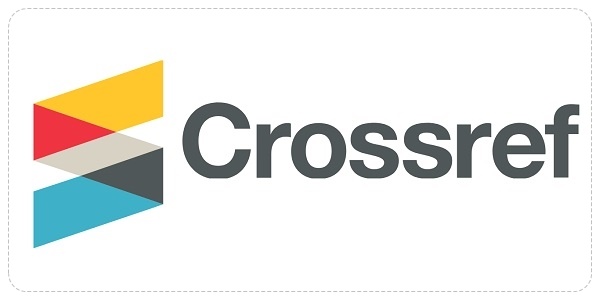PERAN SERVANT LEADERSHIP, COMMITMENT AFFECTIVE, DAN ORGANIZATIONAL CITIZENSHIP BEHAVIOR TERHADAP EFEKTIVITAS TIM GURU
Abstract
Abstrak
Banyak penelitian telah membuktikan bahwa efektifitas tim merupakan salah satu faktor yang mempengaruhi performa dan kesuksesan sebuah organisasi. Sekolah sebagai lembaga pendidikan juga sangat membutuhkan hal ini untuk dapat mencapai target pendidikan dengan maksimal. Penelitian ini dilakukan untuk melihat pengaruh dari kepemimpinan yang melayani, komitmen afektif terhadap organisasi, serta organizational citizenship behaviour terhadap tim efektivitas. penelitian ini dilakukan secara quantitatif dengan menggunakan metode SEM(Structural Equation Modeling). Data yang berkaitan dengan variabel-variabel yang diteliti kemudian dikumpulkan melalui kuesioner. Penelitian dilakukan dengan mensurvei guru-guru dari sekolah XYZ sejumlah 43 orang pengajar sebagai populasi. Pengembalian data 86% dengan semua pertanyaan terjawab. Pengolahan data yang dikumpulkan dilakukan menggunakan program perangkat lunak SmartPLS untuk membantu menghitung uji hipotesis yang ada. Hasil penelitian menunjukan bahwa servant leadership, komitmen afektif dan OCB memiliki berpengaruh terhadap efektivitas kerja tim. Didapati juga bahwa servant leadership tidak memiliki pengaruh terhadap OCB yang berbanding terbalik dengan komitmen afektif yang terbukti memberikan pengaruh positif terhadap OCB pada sekolah XYZ.
Abstract
Many studies have proven that team effectiveness is one factor that affects an organization's performance and success. Schools as educational institutions also really need this to be able to achieve maximum educational targets. This study was conducted to see the influence of serving leadership, affective commitment to organizations, and organizational citizenship behavior on team effectiveness. This research is a quantitative research using the SEM (Structural Equation Modeling) method. The data relating to the variables studied were then collected through a questionnaire. The study was conducted by surveying 43 teachers from XYZ school as a population. As many as 86% of data return with all questions answered. The collected data processing was carried out using the SmartPLS software program to help calculate existing hypothesis tests. The results showed that servant leadership, affective commitment and OCB affected the effectiveness of teamwork. It was also found that servant leadership does not have an effect on OCB which is inversely related to affective commitment.
Keywords
Full Text:
PDF (Bahasa Indonesia)References
Afolabi, O., Adesina, A., & Aigbedion, A. (2009). Influence of team leadership and team commitment on teamwork and conscientiousness. Journal of Social Sciences, 21(3), 211–216.
Budihardjo, A. (2011). Organisasi Menuju Pencapaian Kinerja Optimum. Jakarta: Prasetiya Mulya Publishing.
Bush, T., & Heystek, J. (2006). School Leadership and Management in South Africa: Principals’ perceptions. Educational Management and Professional Development, 34(3), 63-76.
Ghozali, Imam, & Latan, H. (2015). Partial Least Square: Konsep, Teknik dan Aplikasi menggunakan Program SmartPLS 3.0 (2nd ed.). Semarang: Badan Penerbit UNDIP.
Handoyo, S. (2010). Pengukuran Servant leadership sebagai alternative kepemimpinan di institusi pendidikan tinggi pada masa perubahan organisasi. Universitas Airlangga, Surabaya. Makara, Sosial Humaniora, Vol.14, No. 2, 130-140.
Irving, J. A., & Longbotham, G. J. (2007). Team effectiveness and six essential servant leadership themes: A regression model based on items in the Organizational Leadership Assessment. International Journal of Leadership Studies.
Jane, T. (2006). Servant Leadership Research Roundtable. Waddell Regent University.
Kartika, E. W. (2011). Analisis Pengaruh Leader-member Exchange, Perceived Organizational Support, dan Komitmen Organisasional ter-hadap Organizational Citizenship Behavior pada Karyawan Hotel Berbintang Lima di Surabaya. Surabaya: Universitas Airlangga.
Kaswan. (2012). Manajemen Sumber Daya Manusia: Untuk Keunggulan Bersaing Organisasi. . Yogyakarta: Graha Ilmu.
Lee, Boyun, & Kim, Y. (2017). Transformational leadership and organizational citizenship behavior: Mediating role of affective commitment. Sage.
Mahembe, B., & Engelbrecht, A. (2014). The relationship between servant leadership, organizational citizenship behaviour and team effectiveness. SA Journal of Industrial Psychology/SA Tydskrif vir Bedryfsielkunde, 40(1), Art. #1107, 10 pages.
Mahembe, B., & Engelbrecht, A. S. (2013). The relationship between servant leadership, affective team commitment and team effectiveness. SA Journal of Human Resource Management/SA Tydskrif vir Menslikehulpbronbestuur, 11(1), Art. #495, 10 pages., http://dx.doi.org/10.4102/sajhrm.v11i1.495.
Mahembe, B., Engerbrecht, A. S., & Dannhauser, Z. (2016). The relationship between servant leadership, affective commitment: Organizational citizenship behavior and team effectiveness. Proceedings from the 22nd Congress of the International Association for Cross-Cultural Psychology.
Masterson, S., Lewis, K., Goldman, B., & al., e. (2000). Integrating justice and social exchange: the differing effects of fair procedures and treatment on work relationships. Acad Manage Rev, 43: 738–748.
Meyer, J., Allen, N., & Smith, C. (1993). Commitment to Organizations and Occupations: Extention and Test of a Three-Component Conceptualization. Journal of Applied Psycho-logy, 78(4): 538-551.
Mohammad, J., Habib, F., & Alias, M. (2011). Job satisfaction and organizational citizenship behaviour: An empirical study at higher learning institutions. Asian Academy of Management Journal, 16(2), 149-165.
Noe, R. A., Hollenbeck, J. R., Gerhart, B., & Wright, P. M. (2011). Manajemen Sumber Daya Manusia Mencapai Keunggulan Bersaing. Edisi Keenam. Jakarta: Salemba Empat.
Piccoli, Gabriele., Powell, Anne., Ives, & Blake. (2004). Virtual teams: team control structure, work processes, and team effectiveness. Information Technology and People, 17(4), 359-379.
Podsakoff, P. M. (2000). Organizational Citizenship Behavior: A Critical Review of The Theoretical and Empirical Literature and Suggestions for Future Research. Journal of Management Vol. 26, No. 3.
Poli, W. (2011). Kepemimpinan Stratejik; Pelajaran dari Yunani Kuno hingga Bangladesh. . Makassar: Universitas Hasanuddin. Journal of Economic and Business.
Ren-Tao, M., & Heung-Gil, K. (2009). The impact of organizational citizenship behaviour on team effectiveness in China: The moderating role of task complexity. Fourth International Conference on Computer Sciences and Convergence Information Technology, (pp. 641-646). Seoul.
Rhoades, L., Eisenberger, R., & Armeli, S. (2001). Affective Commitment to the Organization: The Contribution of Perceived Organizational Support. Journal of Applied Psychology, 86(5), 825-836.
Robbins, S. P., & Judge, T. A. (2015). Perilaku organisasi. Jakarta: Slemba Empat.
Sheng, C., & Tian, Y. (2010). Relationships among teamwork behaviour, trust, perceived team support, and team commitment. Social behaviour and personality, 38(10), 1297-1306.
Spector, P., & Che, X. (2014). Re-examining citizenship: how the control of measurement artifacts affects observed relationships of organizational citizenship behavior and organizational variables. Hum Perform, 27:165–182.
Umam, K. (2012). Perilaku organisasi. Cetakan kedua. Bandung: CV Pustaka Setia.
Watson, R. (2015). Quantitative Research. Nursing Standard Vol 29, 2, 40-49.
Widoyoko, e. P. (2012). eknik Penyusunan Instrumen Penelitian. Yogyakarta: Pustaka Pelajar.
World Health Organization. (2012). Being an Effective Team Player. Retrieved from https://www.who.int/patientsafety/education/curriculum/course4_handout.pdf?ua=1#:~:text=An%20effective%20team%20is%20one,making%20responsibilities%20to%20optimize%20care.
DOI: https://doi.org/10.17509/pdgia.v18i3.28202
Refbacks
- There are currently no refbacks.
INDEXED BY

This work is licensed under a Creative Commons Attribution-ShareAlike 4.0 International License
















